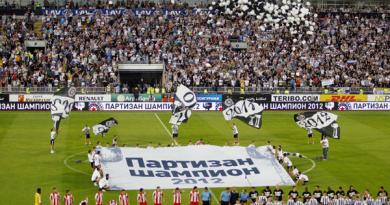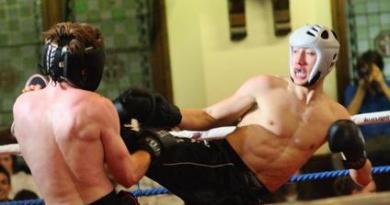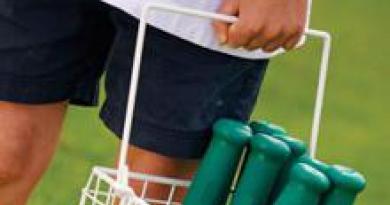Physical training military personnel, law enforcement officers and law enforcement agencies, being an important and integral part of military training and education of personnel of military formations, law enforcement agencies and law enforcement agencies of the Republic of Kazakhstan, is aimed at increasing physical fitness the contingent of these organizations, the development of their ability to endure high physical activity and psychological stress, the organization of meaningful leisure.
The purpose of physical training is to ensure the physical readiness of military personnel, law enforcement officers and law enforcement agencies to perform special tasks that meet the requirements of their professional activities.
The main objectives of the physical training of military personnel, law enforcement officers and law enforcement agencies are:
development and maintenance at the required level of physical qualities - endurance, strength, speed and dexterity;
formation of special physical qualities and skills;
strengthening the musculoskeletal system;
prevention of diseases and bad habits, hardening of the body;
education of psychological stability, self-confidence, determination, courage and determination, initiative and resourcefulness, perseverance, endurance and self-control;
formation of readiness to endure extreme physical and psychological stress during the preparation period and directly in the performance of tasks;
development of military-applied sports among military personnel, law enforcement officers and law enforcement agencies.
To solve these problems, the relevant ministries and departments develop and approve departmental programs physical education personnel aimed at improving physical development and the introduction of a healthy lifestyle, the development and development of skills in professionally applied physical training, the implementation of control standards for general and special physical training, the training and participation of athletes from these departments in the world championships among military personnel, police and law enforcement agencies is ensured.
Physical culture among the population
Physical culture and sports are one of the most important means of strengthening the health of citizens of the country, spiritual and physical education of young people, and the formation of a healthy lifestyle. In this regard, the primary task of the state in the industry is to make physical education and sports accessible to all segments of the country's population.
Development physical education among the population should be carried out by forming an appropriate motivational structure. An adult person voluntarily participates in physical culture and sports movement. The amateur physical culture and sports movement should be revived through a whole system of incentives.
Physical culture and health and sports clubs should become the basis of the country's physical culture and sports movement. Along with physical culture and sports clubs, sports centers offering more comfortable conditions a wide variety of services.
Mass sports and health-improving work in the regions should be aimed at increasing the number of available competitions in mass sports for all age groups population (in labor collectives, at the place of residence and recreation of the population, in educational institutions). The main task of such events is to stimulate people's desire for daily physical culture and health-improving activities, to involve them in competitive activities.
Particular attention should be paid to the development national types sports, original physical exercises and folk games and use them in introducing the population to active physical culture and sports.
At enterprises and organizations of all forms of ownership, the rights of employees to engage in physical culture and sports during the working day and post-work recovery should be realized. Joint efforts of state bodies, enterprises and organizations of all forms of ownership are needed to involve citizens in systematic physical education and sports, to introduce a set of measures for post-labor rehabilitation into the system of organizing work and rest.
Physical culture and sports among the disabled
Serious attention should be paid to the involvement of disabled people in physical culture and sports activities. To do this, it is necessary to ensure the creation of appropriate conditions for physical culture and sports in sports clubs and halls, training disabled athletes for international competitions, including the Paralympic Games.
The basic concepts of physical culture, physical training and sports are reflected in the federal law "On Physical Culture and Sports in Russian Federation”, adopted State Duma January 13, 1999
Physical culture is a part of the general culture of society, it is a set of material and spiritual values used by a person in the process of physical culture and sports activities for his physical improvement.
Sport is a part of physical culture, which is a combination of material and spiritual values that are created and used by society for the gaming activities of people, aimed at intensive specialized morphofunctional and psychological preparation for the subsequent maximum manifestation of abilities through competition in predetermined motor actions.
Physical education is a type of education, the specific content of which is training in movements, education of physical qualities, mastery of special physical education knowledge and the formation of a conscious need for classes. exercise.
Physical education is the process and result of mastering specialized knowledge, physical exercises, as well as ways of their independent study and use in life.
Physical fitness is a purposeful process of improving physical development and functional state, increasing the level of physical fitness, carried out in the conditions of service and professional activities.
The physical state is a qualitative characteristic that reflects the level of human activity, and includes indicators of physical development, functional state and physical fitness.
Physical development - is determined by a combination of morphological and functional characteristics (properties) of the body (for example, a person's physique).
The functional state is manifested in the integral complex of various indicators of the functioning of organs and systems of the human body: cardiovascular, respiratory, etc. They are the ones that undergo the most significant changes in the process. active classes physical exercise.
Physical fitness is the main result of the physical training process. This is a qualitatively new state of the human body. Physical fitness is characterized by the level of development of physical qualities and the degree of formation of motor skills.
Physical Qualities- These are the properties of the body that provide the motor activity of a person. The main physical qualities include: endurance, strength, speed and agility, flexibility.
Motor skills are practical actions brought to automatism, performed in accordance with the task. Motor skills are divided into general (walking, running, jumping, etc.) and professional-applied skills (overcoming obstacles, fighting techniques, etc.).
Physical exercise is the main means of physical training, motor actions used to improve physical condition a person in general and increase his physical fitness in particular. Physical exercises are characterized by content and form.
Physical training as a pedagogical process is integral part professional training of employees of the Ministry of Internal Affairs of Russia.
The purpose of the physical training of employees of the Ministry of Internal Affairs of Russia is to form the physical and psychological readiness of employees for the successful implementation of operational tasks, skillful use physical strength, fighting techniques and special means when suppressing illegal actions, as well as ensuring their high performance in the course of their official activities. Achieving this goal involves solving the following tasks:
- preparation for actions related to the use of special means, service weapons, fighting techniques;
- preparation for the prosecution of offenders and long-term accelerated movement on the ground;
- mastering the system of practical skills and abilities of self-defense and personal security in extreme situations of employees' official activities;
- · the formation of the necessary intellectual and professional-psychological qualities of a person (courage, determination, humanity, self-discipline, vigilance, attention, self-control, perseverance, etc.).
The successful solution of the above tasks, both in the departments of the internal affairs bodies, and educational institutions The Ministry of Internal Affairs of Russia provides:
- selection of optimal means, methods and forms of training;
- · high level of practical and methodical readiness of instructors and teachers;
- · high quality conducting training sessions;
- reproduction in physical training classes of various tasks, situations and conditions as close as possible to real ones;
- solving various inputs on the tactics of ensuring personal professional security and the lawful use of special means, combat fighting techniques;
- creation and improvement of the necessary educational and material base;
- Ensuring proper control over the implementation of the curriculum.
Educational, upbringing and developing functions of physical training are implemented in the conditions of a specialized training system that provides for the organization of classes in relation to the service and professional activities of employees of the Ministry of Internal Affairs of Russia. Such an organization of classes provides for the formation of applied motor skills and skills, training employees in effective and lawful solving of practical problems of law enforcement (long-term search or quick pursuit of an offender on the ground; detention of offenders who disobey or resist; martial arts with an armed or unarmed offender, etc. .).
The article deals with the issues of training law enforcement officers with the use of service-applied sports.
Applied sports, Preparation , law enforcement
Short address: https://readera.ru/140196433
IDR: 140196433
Bibliography Applied sports as a basis for training law enforcement officers
- Endaltsev, B.V. Improvement of adaptive capabilities is the main direction of physical training of military specialists / B.V. Endaltsev//Theory and practice of physical culture. -2014 -No. 9 -S. 22-24.
- Endaltsev, B.V. Physical culture, health and human performance in extreme environmental conditions: monograph / B.V. Endaltsev. - St. Petersburg: MO RF, 2008.
- Vikhruk, T.I. Medico-biological substantiation of a differentiated approach to the organization of physical training classes for cadets / T.I. Vihruk//Theory and practice of physical culture. -2014. -No. 9. -S. 45-47.
- Sorokin, V.P. Physical qualities as a basis for the professional readiness of military personnel / V.P. Sorokin//Theory and practice of physical culture. -2014. -No. 9 -S. 28-30.
- Fundamentals of training athletes in applied sports of the Federal Drug Control Service of Russia: a report on research (final) / D.A. Chermenev. -Krasnoyarsk: SIBUI FSKN of Russia, 2015.
- Chermenev, D.A. Occupation with applied sports (on the example of official biathlon) as adaptation to extreme conditions of official activity / D.A. Chermenev//Physical culture and sport in professional activity: modern trends and educational technologies: collection of materials of the II International scientific and practical conference(Khabarovsk, October 8-10, 2014) / Far Eastern Law Institute of the Ministry of Internal Affairs of Russia. -Khabarovsk: RIO DVYuI MIA of Russia, 2014. -S. 229-233.
- Frolkis, V.V. Aging and increase in life expectancy / V.V. Frolkis. -L.: Nauka, 1998.
Formation of the domestic system of defense and attack.
Tactical and technical actions hand-to-hand combat were developed by the efforts of a large group of specialists, such as V.A. Sidorov, V.S. Oshchepkov, who in different ways came to realize the need to create a domestic system of defense and attack and began this work.
In July 1918, for the training of specialists, short-term courses for sports instructors were opened, later transformed into military schools of physical education under the program, which taught the discipline "Defense and attack without weapons."
One of her teachers was V.A. Spiridonov.
Training in wrestling, boxing, jiu-jitsu received much attention at the Moscow courses for sports instructors and pre-conscription youth. The training was carried out in order to increase readiness for close hand-to-hand combat.
Established in 1923, the sports society "Dynamo", uniting security officers, border guards and police officers in its ranks, took on the main job of fulfilling these tasks.
The official transition of the domestic system of self-defense to the rails of military-applied physical culture occurred with the issuance of the order of the All-Union Committee for Physical Culture and Sports of the Council of People's Commissars of the USSR N 633 of November 16, 1938, which stated: “Taking into account the defensive significance of freestyle wrestling, include in the complex of norms of the TRP of the 2nd degree as one of the test norms for men - wrestling, for women - a self-defense complex based on freestyle wrestling "
This date is the official birthday of sambo wrestling as a sports section of self-defense without weapons, although until 1974 it was called “freestyle wrestling”.
Special physical training refers to the training of those involved in combat techniques of wrestling and hand-to-hand combat, as well as physical and psychological preparation during these lessons.
It has been established that the system of special physical training for NKVD and police officers began to be created in the 1920s.
Thus, it can be concluded that from the moment of the formation of special physical training, real situations of attack were included in the process of training police officers. However, their variability was insignificant and included 1-2 technical actions under standard conditions.
A significant contribution to the development of self-defense in the training of police officers in the 40s was made by V.P. Volkov.
The author has developed a sambo system, which provides for: special physical techniques; fighting techniques standing and lying; wrestling in a prone position; release from various seizures; methods of detention and escort; as well as special techniques, including actions against persons armed with a sapper shovel, rifle, revolver and various types edged weapons, in addition, he developed the tactics of sambo, which included: deceptions, calling the enemy to a reception, preserving one's own strength and exhausting the enemy, the ability to hide one's own fatigue.
V.P.Volkov also proposed to study in the process of training methods of protection from real situations of attacks on police officers encountered in practice, but the number of proposed situations was insignificant.
In 50-70 years further development sambo received in the works of A.A. Kharlampiev, who pointed out that the use of self-defense techniques depends on the specific circumstances that have developed since their use, on the degree of preparedness of a police officer, as well as on his knowledge of various tricks and tricks used by criminals.
In the analytical materials of the Ministry of Internal Affairs of the Russian Federation it is said that in the conditions of a complicated operational situation and in extreme situations, police officers often show confusion and helplessness, cede the right to violators in the ability to use self-defense techniques. This indicates an insufficiently effective system of training employees for successful actions in situations of detention of offenders.
Therefore, in physical training classes, the main attention should be focused on the development of combat techniques of struggle and service-applied exercises that provide police officers in physical and moral-psychological terms to fulfill their official duties in any conditions of everyday life.



